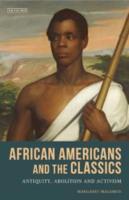
I. B. Tauris (2016) h/b 290pp £64.00 (ISBN 9781784534950)
One of the major themes to have emerged in classical reception over the last decade or so has been the way in which the use of ancient texts and ideas have influenced writers who wish to explore the relationships between racial traditions in modernity. With its constant debates over racial interaction, America has proved a rich subject for such research, and in this book M. examines different examples of the ‘polemical use of classical texts by African American activists and their supporters’ (3), and it offers an exciting and wide-ranging exploration of this tradition that will be a fantastic resource for those seeking to link classical learning to some of the foundational political and cultural debates of modernity.
The four chapters explore the political history of attitudes to the relationship between racial identity and classical antiquity from different perspectives. The first chapter, ‘Fighting for Classics’, considers the debates in the late nineteenth century over whether or not the knowledge of ancient Greece and Rome, in its languages and its history and literature, should form part of African American education. Here M. pits Booker T. Washington, who advocated technical and vocational education as the best means for African American social development, against W. E. B. DuBois, who believed that intellectual inquiry was the best means for African American self-improvement.
The second and third chapters, ‘Figuring Classical Resistance’ and ‘Ancient and Modern Slavery’ both revolve around different approaches to the idea of slavery in the eighteenth and nineteenth centuries. The former explores the way that debates between abolitionists and advocates in favour of slavery often turned on different uses of the classical legacy, such as the symbol of Spartacus. The latter chapter looks at how a comparison between the ideas of ancient and modern slavery was crucial to Northern and Southern approaches to the classical legacy surrounding the American Civil War, focusing on the reception of Aristotle and the competing use of Greek-inspired architecture. The fourth chapter, ‘Constructing History’, has the most enigmatic title and contains the most overtly theoretical and least historical analysis in the book: here, M. explores the way in which the example of ancient Egypt was woven into, and distanced from, historical narratives about the heritage of African Americans.
Overall, M. does a stellar job exploring the ambiguity of the role of classics in these controversial debates, and the depth of historical research is extremely impressive.
Adam Lecznar
